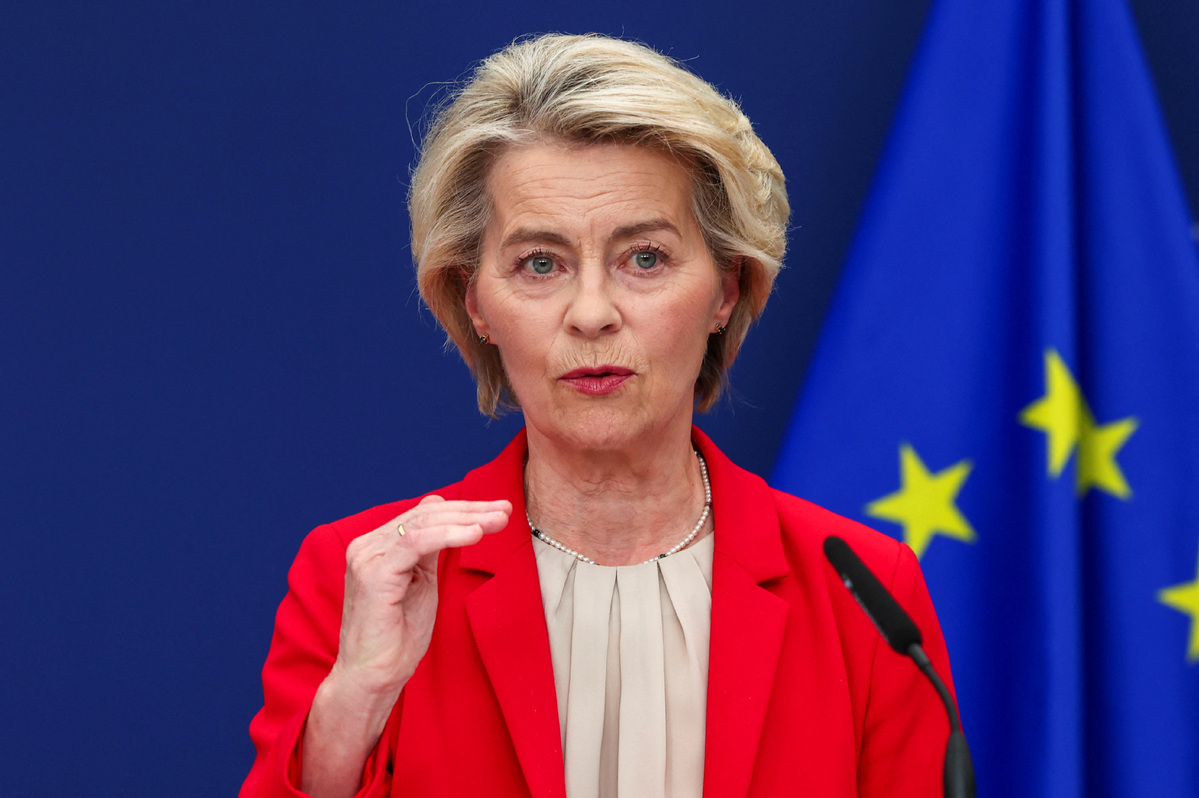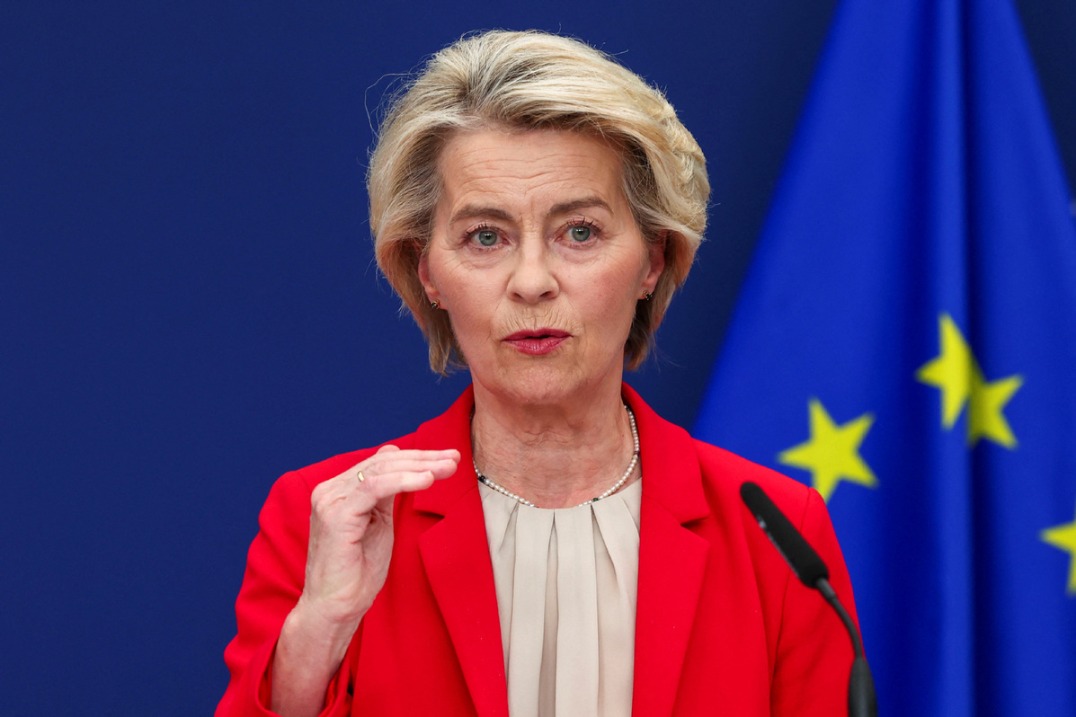EU split on Russian sanctions: Experts


The European Commission's proposal on Tuesday for a fresh 18th round of sanctions against Russia is likely to face opposition from some member states and a less cooperative US government, according to officials and experts.
The proposal, announced by Commission President Ursula von der Leyen and High Representative Kaja Kallas, targets Russia's energy, military industry and banking sector.
It has proposed a transaction ban for Nord Stream 1 and Nord Stream 2 and added 77 vessels transporting Russian oil on the list, bringing the total to over 400. It has also proposed to lower the oil price cap from $60 to $45 per barrel and ban imports of refined products made in third countries using Russia crude. It has blacklisted an additional 22 Russian banks to be banned from the SWIFT messaging services based in Belgium.
"Our message is very clear: This war must end. We need a real ceasefire, and Russia has to come to the negotiation table with a serious proposal," von der Leyen said, in a tone different from six months ago during the Joe Biden administration in the US which showed little interest in ceasefire and negotiation.
"As it is up to today not showing a willingness to achieve peace, we will step up pressure on Russia, including through further robust sanctions," von der Leyen said.
The proposal was revealed ahead of a G7 summit which begins on Sunday in Alberta, Canada, where Ukraine will also be invited and where the reduced oil price cap will be discussed.
Asked if the EU would go it alone on the price cap, von der Leyen suggested it would not, at least not for the time being.
"My assumption is that we do that together as G7," she said, adding: "We started as G7, it was successful as a measure from the G7, and I want to continue this measure as G7".
While adopting the sanctions requires unanimous agreement by all 27 member states, Hungary and Slovakia have criticized fresh sanctions, saying they harm the EU's economy more than Russia's.
Slovak parliament approved a resolution on June 5 urging the government not to vote in favor of new EU sanctions on Russia.
"If there is a sanction that would harm us, I will never vote for it," Slovak Prime Minister Robert Fico said on Sunday.
Ding Chun, director of the Center for European Studies at Fudan University, said the EU's latest move is to reinforce sanctions on Russia's energy, financial and technological sectors and it also shows that US President Donald Trump's efforts to mediate a ceasefire between Russia and Ukraine have not been effective.
"In a certain way, it is pressuring the Trump administration and highlighting the EU's role in the conflict," Ding said.
Trump has so far not shown any enthusiasm about sanctions on Russia. US Treasury Secretary Scott Bessent was skeptical about the oil price cap move when it was discussed at a G7 finance ministers' meeting last month.
US Senator Lindsey Graham, who has been lobbying for a 500 percent tariff on any country that buys Russian oil, applauded the new EU proposal, saying on X: "Well done to our European allies".
But his bill was sharply criticized by Senator Rand Paul.
"The Graham tariff bill would shut down trade with China, India, Turkiye, half of the EU, and dozens more just for buying energy from Russia. It could trigger a global depression. One of the most reckless, ill-conceived economic proposals I've ever seen," he said on X.
Kimberly Donovan at the Washington-based Atlantic Council, also a former US Treasury official, said members of the US Congress may welcome the new EU package.
"We'll have to wait and see how Trump reacts considering the stalled ceasefire talks and escalating violence on the battlefield," she said.

































